
The price of a racehorse can vary greatly depending on the bloodline, training, and race history of the animal.
So, how much does a racehorse cost?
The average racehorse price is $75,000 so keeping an equine is quite pricey. Well-experienced racehorses cost millions of dollars, while beginner racehorses are worth a few hundred. For instance, the Kentucky Derby horse costs around $25,000. The Thoroughbred horse is worth $60,000, while the Arabian racehorse is worth $65,000.
Let’s reveal some factors that you should consider when making your purchase. Check where to buy a racehorse and what to pay attention to.
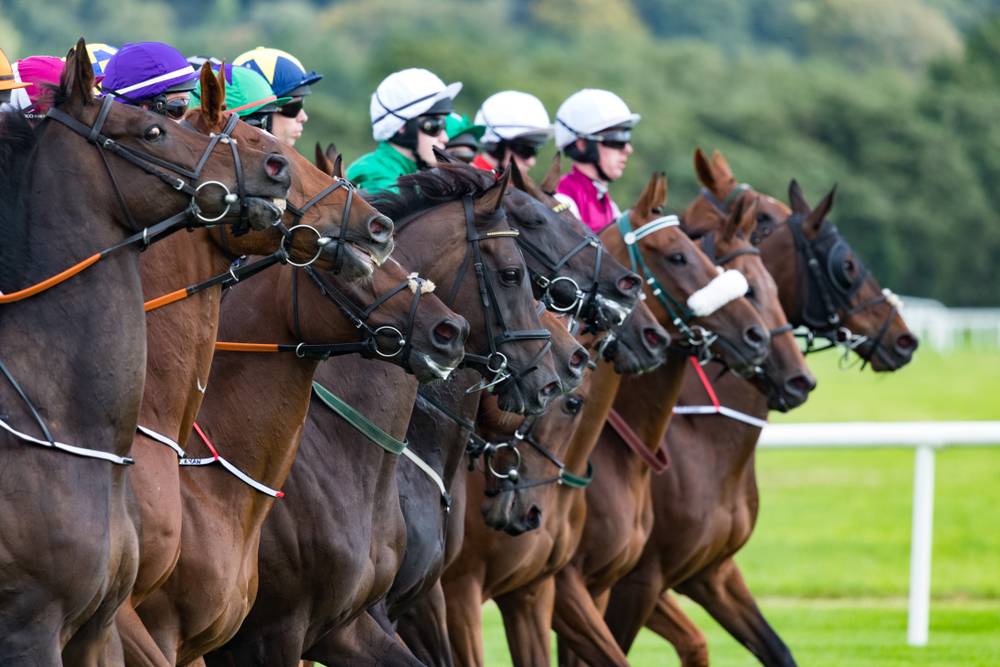
The Costs of Owning a Racehorse
When you’re looking for the answer to the question “How much is a racehorse?” consider the cost of the horse plus maintenance costs. Here’s a list of basic expenses you should be ready for when owning a racehorse.
1. Horse Purchase
A young racehorse with a good race record can cost anywhere from $30,000 to $50,000. Winning horses with a great race record can cost up to $500,000 or more. Fusaichi Pegasus is deemed the most expensive Thoroughbred racehorse worth nearly seventy million dollars. Purchasing an expensive racehorse is just the beginning of the path.
2. Horse Training Fee
Racehorse training fees go about $40 to $100 per day. It’s important to choose a reputable trainer. The price will be worth it if your horse wins races. Horse trainers will cover some basic horse care and boarding. Additionally, pay attention to transportation, upkeeping, feeding, and watering. You can take over some duties on yourself to save a few bucks.
Some people choose to race their horses on the track. Horse racing can be expensive, but it’s worth it if you’re serious about winning races. Make sure you research the different options before making a decision.
3. Sheltering and Stabling
Your racehorse will need a place to stay. The average price for stabling a racehorse is $200 to $500 per month. If you want to shelter your horse at home, make sure you have enough space. You’ll also need to purchase hay, straw, and bedding materials. Consider water and electrical bills when budgeting for racehorse care. Your horse will need some place to pasture on while resting between training. Consider a horse blanket to protect your horse from direct sunlight and insects when it’s outside. This horse tack costs around $50.
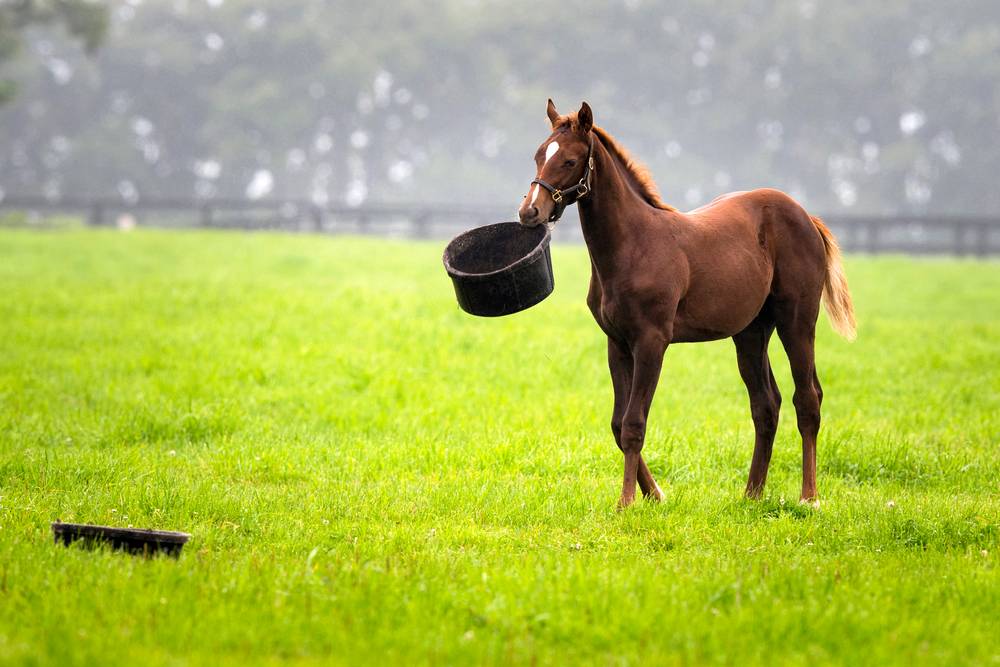
4. Feeding and Watering
Racehorses need a lot of food to maintain their energy levels. The average racehorse eats between 20 and 25 pounds of hay per day. You’ll also need to purchase a grain mix. This mixture should be high in protein and carbohydrates. It is recommended that you get your racehorse’s grain mix from a reputable supplier. A 50-pound bag of this feed costs around $20. Your racehorse will also need plenty of water. Make sure you have an automatic waterer or bucket large enough to hold at least five gallons of water.
5. Vet Bills
It is important to take your race equine to the vet regularly. Your racehorse will need vaccinations, routine check-ups, and occasional dental work. You can expect to pay around $100 per month for your racehorse’s vet bills. Here’s a checklist of what your racehorse will need:
- annual vaccinations;
- Coggins test;
- dental work;
- deworming.
You have to allocate some budget in case of emergency too. The racehorse is a delicate animal and can get sick easily.
6. Farrier Bills
Your racehorse will need to be trimmed and shod every six weeks. A typical racehorse trimming and shoeing bill will cost around $100. It is important to keep your racehorse’s hooves in good condition because they are subject to a lot of wear and tear. Plus, consider a transport fee to get your animal to the farrier.
You can do the trimming and shoeing yourself to save money, but it’s best to leave it to the professionals.
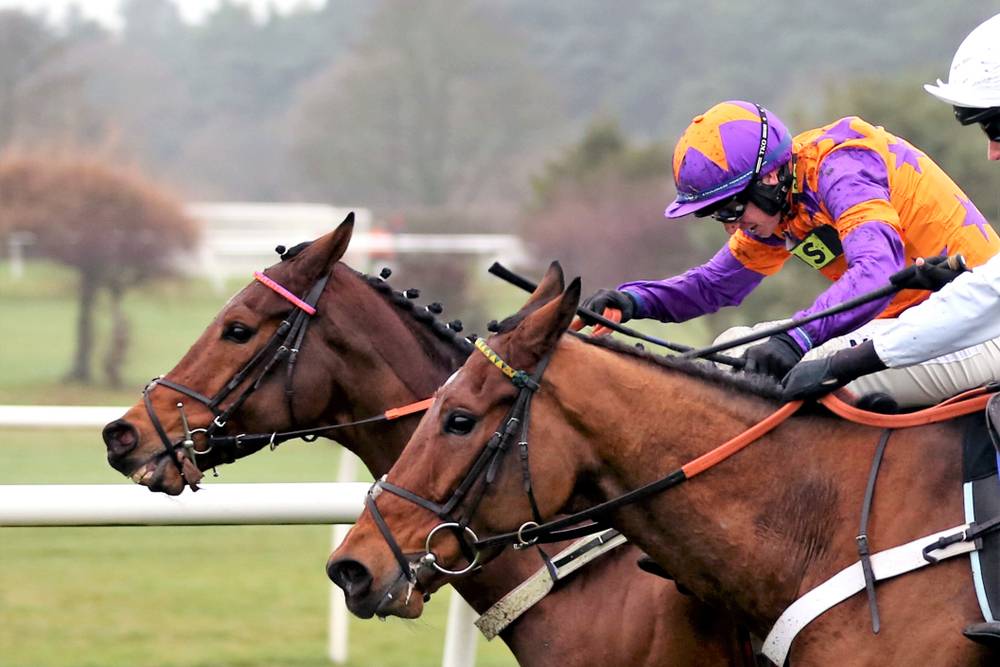
7. Racehorse Insurance
You will need to insure your racehorse before you get it on a horse racing track. This is to protect you financially in case your racehorse gets injured or sick. Racehorse insurance can cost anywhere from $500 to $2,000 per year.
There are many different types of racehorse insurance policies available. So make sure you consult an insurance provider and get the best policy for your needs.
8. Race Entry Fees
When you’re ready to race, you will need to pay an entry fee. Racing fees are usually around $200, but it can vary depending on the race and the racehorse’s classification.
A racehorse owner has to nominate their equine at first before it participates in racing. For this, you will need to pay a nomination fee that will go to the prize money (purse). If you do this within the first weeks, it will cost you around $600. If you decide to participate in a race that has already started, the fee raises significantly up to $20,000!
9. Jockey Fees
You may also need to pay a jockey fee if you don’t have your own jockey. Jockeys usually get around 20% of the winnings, so be prepared to pay them if your racehorse comes in the first place.
10. Racehorse Equipment
The horse tack includes horseshoes, race saddle, bridle, and reins. You can get all of this for around $500. But professional equipment will cost you $10,000 and more. Look for horse equipment made of high-quality materials to ensure the safety of your racehorse. Keep in mind, that not only horses need equipment. Jockeys that will partake in horse races, will need special apparel too.
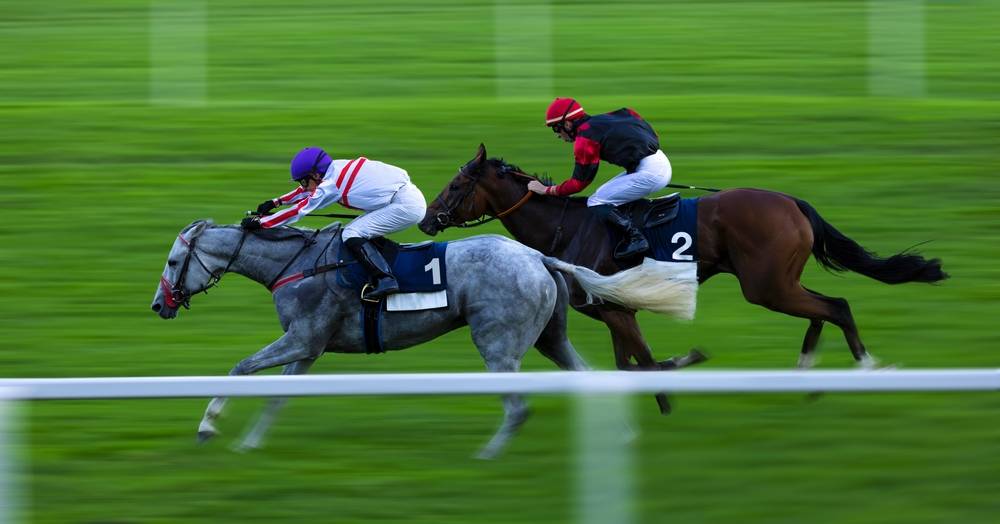
How to Choose the Best Racehorse – Key Factors to Consider
When looking for a racehorse to buy, there are several key factors that affect the racehorse prices.
- The racehorse’s age – the younger the horse, the more time it will have to race.
- The racehorse’s pedigree – look for a racehorse with a winning lineage.
- The racehorse’s health – make sure to get a thorough vet check before buying.
- The racehorse’s training – ask about the trainer and what type of training the horse has had.
With these crucial factors, horse owners should be able to find a racehorse with a successful racing career that fits their budget and needs. Just remember that young horses, especially a Kentucky Derby winner, are a solid investment. So be prepared to fork up a few thousand dollars or more.
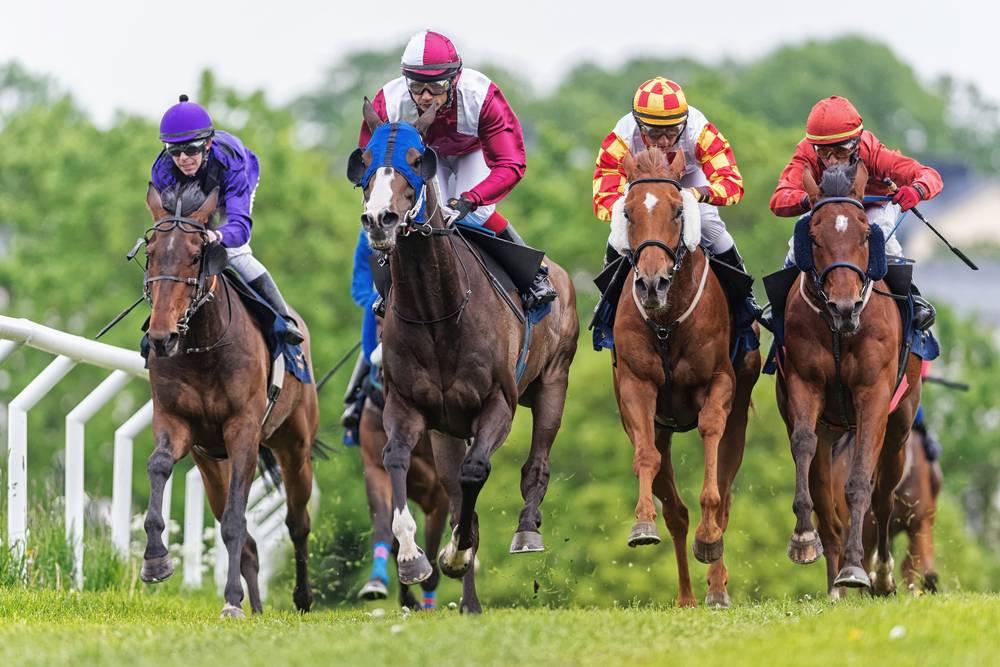
Frequently Asked Questions
How to Buy a Racehorse?
Look for trusted horse auctions or racehorse sales. This is a great option to get a well-trained equine, but you’ll need to cover additional expenses. Alternatively, search for reputable breeders that are specialized in racing horses. This way, you’ll get professional assistance in choosing a healthy athlete equine. You can also find racehorses for sale through classified ads or online listings provided by a private owner.
How Much Should I Spend on a Racehorse?
It depends on the horse’s age, lineage, health, and training. A young, healthy racehorse with a winning pedigree can cost upwards of $100,000. But you can find a retired racehorse for up to $1,000. The animal can still be ridden for pleasure riding but not in horse racing.
What Is the Best Type of Racehorse?
Thoroughbreds are considered the best racehorses. This is also the most popular horse breed and makes up 90% of racehorses on a track. This breed is known for its speed, athleticism, and grace. Standardbreds are another type of racehorse that’s used in harness racing. They’re not as fast as Thoroughbreds but can still reach speeds up to 38 miles per hour.
How Fast Does a Racehorse Run?
The average racehorse can run about 40 miles per hour. The world record for the fastest horse race is held by Secretariat, a Thoroughbred who ran the Kentucky Derby in just 2 minutes and 24 seconds.
How Long Does a Racehorse Live?
The average lifespan of a racehorse is about 25 years. However, some racehorses have been known to live much longer. The oldest living horse on record was Old Billy, who lived to the ripe old age of 62.
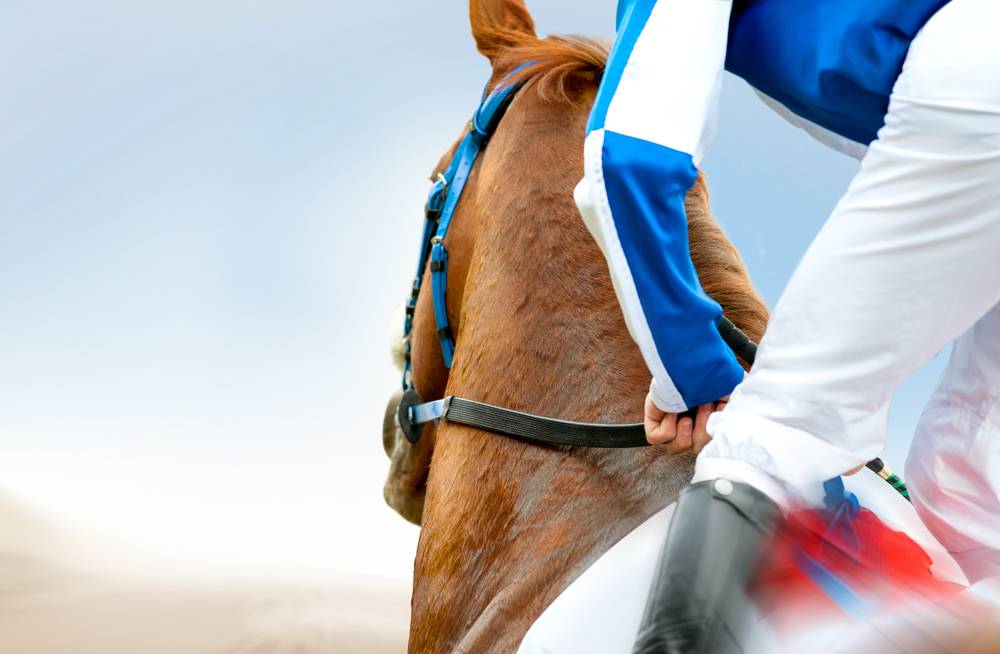
Do I Need Insurance for My Racehorse?
Yes, you will need insurance for your racehorse. Your racehorse insurance policy should cover medical expenses, death, and theft.
When Does a Racehorse Retire?
A racehorse typically retires when it is about seven years old. However, some racehorses race until they are ten years old or older. When the prime racing age passes, the purchase price can be lowered.
What Is a Retired Racehorse Called?
A racehorse that has retired from racing is called an “off-the-track horse.” For example, a retired Thoroughbred horse is called Off The Track Thoroughbred (OTTB). OTTBs can still be used for other activities such as show jumping, dressage, and eventing. The Jockey Club registers all the off-track Thoroughbred horses.
What Happens to Racehorses After They Retire?
When racehorses can no longer race, they are often sold at auction. Some racehorses are sent to slaughterhouses. Many racehorse owners donate their horses to charities that provide therapeutic riding programs for disabled people.
How Much Does a Retired Racehorse Cost?
You can expect to fork up around $1,000 to $3,000 for a retired racehorse. The price tag will depend on the equine’s age, experience, training, and bloodline. A retired racehorse that has won many races will cost more than an old racehorse that has not won any races.
Prizes for Holding Horse Races:
A horse racing race organizer should consider in advance customizing horse racing rewards for the participants, such as medals, coins, and souvenirs. The organizer can request to add the name and logo of the race on these challenge coins, leaving everyone with happy memories. Of course, GS-JJ.com can customize competition prizes in batches, including medals, challenge coins, pins, etc. It is a custom manufacturer favored by many event organizers!

The Average Price for a Racehorse Revealed
The price of race horses depends on your budget and what you’re looking for in a racehorse. A solid rule of thumb is to spend at least $30,000 on a decent racehorse. Of course, if you want a top-quality racehorse, you can expect to pay significantly more than this – sometimes even millions of dollars. Racehorse ownership is pricey but the money invested can bring you even more revenue.
